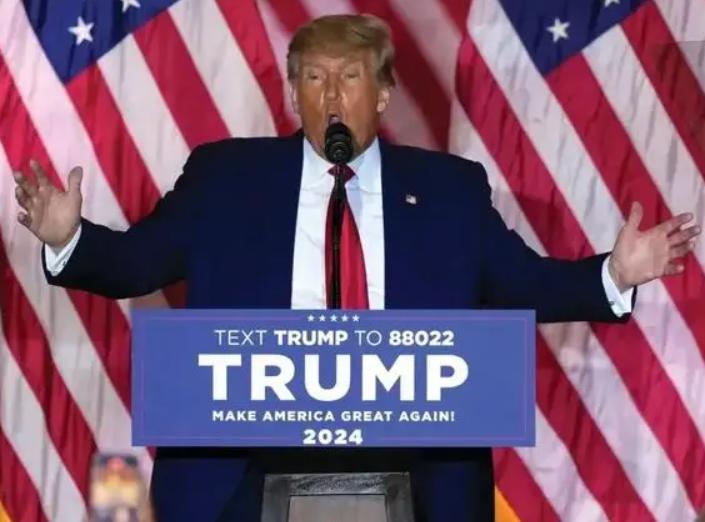
On April 2, local time, US President Trump signed an executive order to impose so-called "reciprocal tariffs" on trading partners, calling the move a "declaration of economic independence" aimed at reshaping the US manufacturing industry and promoting economic Renaissance. But US economists have warned that such protectionist policies could have far-reaching consequences for the global economy, with multiple negative effects on the US economy. U.S. technology stocks also fell sharply after hours. Apple fell 7.1% after hours, Tesla fell 8.01%, Amazon fell 6.1%, Nvidia fell 5.7%, Microsoft fell 2.97%, Google fell 3.63% and Facebook fell 4.84%. The "Big Seven" of US technology has lost more than $700 billion in market value.
Once Trump's tariff policy was announced, it undoubtedly brought a major blow to the science and technology field, while having a complex and multi-faceted impact. The first is the impact on supply chains, technology companies rely on global supply chains, and tariffs have led to a sharp rise in the cost of importing raw materials and components. For example, about 14 percent of Apple's iPhone components come from China, and a 25 percent tariff has been imposed on battery packs made at Tesla's Shanghai factory, directly driving up production costs. Companies are forced to look for alternatives in low-tariff regions, such as Southeast Asia and Mexico. However, this process faces multiple challenges, such as the three-fold increase in factory capital in Vietnam, the surge in land prices in Mexican border cities, and the long capacity climb cycle of new production bases, making it difficult to fill the capacity gap in the short term. The regional industrial chain is not perfect, and the logistics efficiency is low.
The second is the impact on the competition in the technology market. Trump's tariff policy has forced the market competitiveness to weaken, and the sharp rise in costs has made enterprises have to choose to pass on the cost of price increases and reduce profit margins, such as Nvidia's graphics card price rising by 30% and Apple's mobile phone cost skyrocketing by $200. The reality that American consumers face a sharp rise in the price of electronic products will no doubt delay or cancel their purchase plans, resulting in a sharp decline in sales of electronic products.
The third is the impact on scientific and technological research and innovation, tariff policies lead to the reduction of corporate profits, the funds available for research and development investment limited. For example, chip companies may delay capital expenditures due to tariffs, slowing down technology iteration. Supply chain disruptions and rising costs could force companies to cut back on research and development in non-core businesses, affecting long-term technology accumulation. Some high-tech enterprises in the face of US tariff sanctions, the profit reduction directly affects the research and development budget, the financial pressure has risen sharply. Research and development funding is affected, slowing the process of technological innovation. The imposition of tariffs has intensified international trade barriers, hindered technological exchanges and cooperation, and is not conducive to the joint exploration and breakthrough of global high-tech enterprises in the field of cutting-edge technology. Enterprises need to accelerate the diversification of supply chain layout, increase investment in Southeast Asia, Mexico and other regions, but it is difficult to completely get rid of the dependence on Asian supply chains in the short term. Through technological innovation to enhance the added value of products, reduce the dependence on cost sensitive, but the research and development cycle is long, the effect is difficult to show in the short term.
Fourth, the impact on global trade relations, unilateralist tariff policies damage the United States global trade leadership, long-term impact on the strategic layout of multinational enterprises. The European Union, Canada, Japan and other countries announced retaliatory tariffs on US goods, further impacting the international business of the Big Seven technology companies. France, Germany and other European countries may implement "digital tariffs" on US technology companies through public procurement blockades, access restrictions on financial services and other means, targeting cloud computing, data flow and other fields.
To sum up, Trump's tariff policy has had a systemic negative impact on the science and technology sector through multiple paths such as cost impact, market suppression, and innovation suppression. Enterprises need to respond through supply chain diversification, technological innovation, market restructuring and other strategies, but policy uncertainty will still be the biggest risk factor.

According to Yahoo US media reports, the recent remarks of Federal Reserve Chair Jerome Powell have drawn deep concern from the market about the health of the US labor market.
According to Yahoo US media reports, the recent remarks of …
After 11 years of waiting in the deep sea, we finally have …
On December 17, 2025, the newly renovated American "Preside…
Nike's second-quarter revenue reached 12.4 billion US dolla…
The European Union (EU) recently announced sanctions agains…
In December 2025, the U.S. economy and financial markets ex…